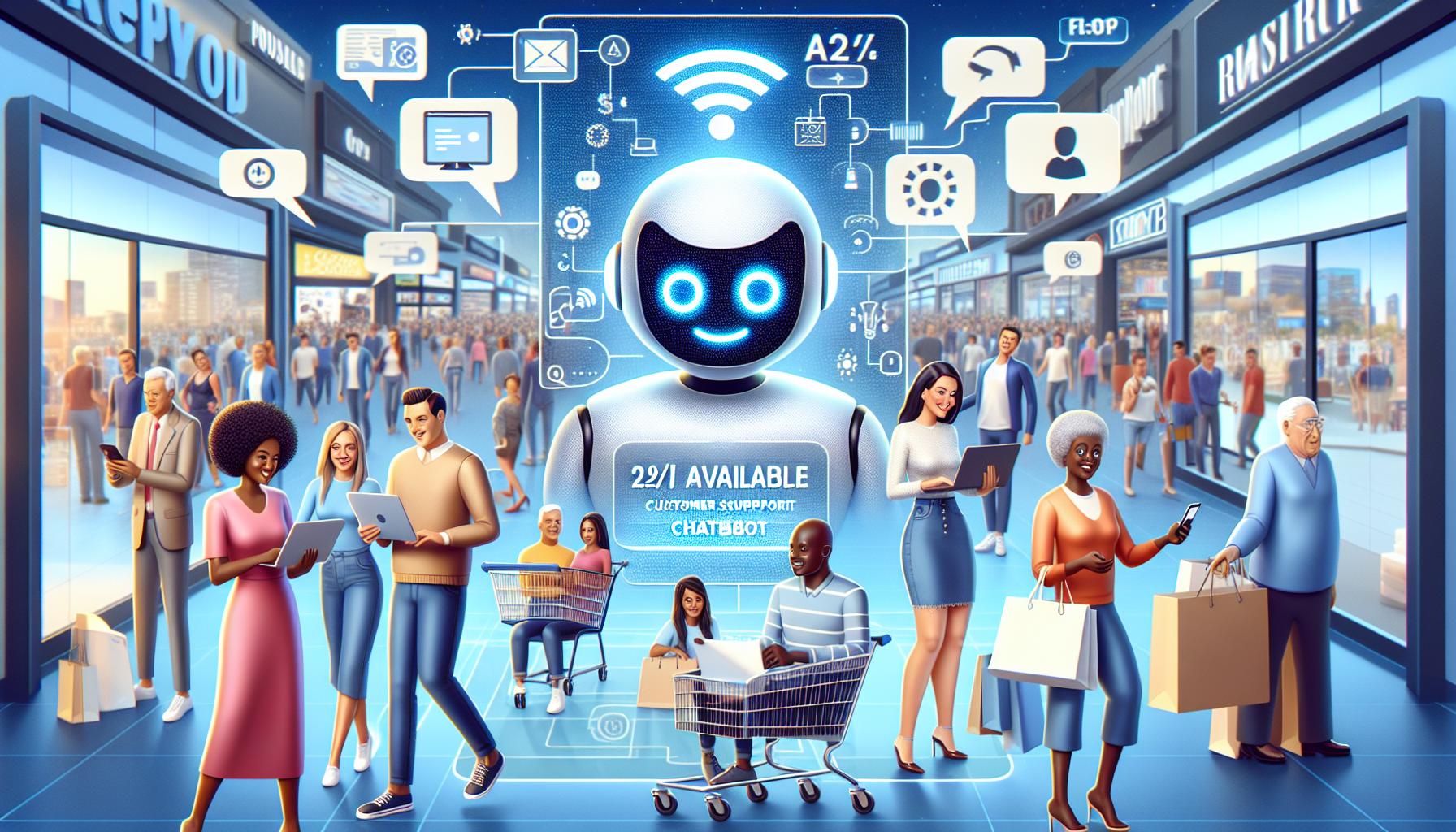Transforming Customer Service in Retail: The Role of AI Chatbots

Introduction
The retail industry is undergoing a seismic shift, driven by the rapid adoption of artificial intelligence (AI) technologies. Among these, AI chatbots have emerged as a transformative force, redefining customer service paradigms. These intelligent agents are not just a futuristic concept but a present-day reality, offering retailers the ability to provide instant, round-the-clock support. In a landscape where customer expectations are soaring, AI chatbots are stepping in to fill the gap, ensuring customer inquiries are handled efficiently and effectively. This article delves into how AI chatbots are revolutionizing customer service in retail, focusing on their role in handling vast volumes of customer interactions, improving satisfaction, and reducing operational costs.
The Need for AI in Retail Customer Service
Retailers are increasingly recognizing the need for AI in customer service. With the digital age comes an influx of customer inquiries, ranging from simple questions about product availability to complex issues like returns and refunds. Traditional customer service methods, reliant on human agents, often struggle to keep up with this demand, leading to long wait times and dissatisfied customers. AI chatbots, however, offer a scalable solution. By automating responses to common queries, they free up human agents to focus on more complex issues, ensuring a seamless customer experience. This shift not only improves customer satisfaction but also significantly reduces operational costs, as businesses can handle more inquiries without needing to expand their customer service teams.
AI Chatbots: Efficiency and Personalization
One of the standout features of AI chatbots is their ability to deliver both efficiency and personalization. These bots are programmed to understand and process natural language, allowing them to interact with customers in a conversational manner. For instance, AI chatbots can provide automated size recommendations based on a customer's previous purchases and preferences, enhancing the shopping experience. Additionally, they can handle returns by guiding customers through the process step-by-step, reducing the burden on human agents. By answering frequently asked questions instantly, AI chatbots ensure that customers receive the information they need without delay. This level of personalization not only meets customer expectations but often exceeds them, fostering brand loyalty and repeat business.
Case Studies: Success Stories in Retail
Several retail giants have already embraced AI chatbots with remarkable success. For example, a leading fashion retailer implemented a chatbot to handle customer inquiries about order status and delivery times. The result was a 30% reduction in call center volume and a 25% increase in customer satisfaction scores. Another example is a global electronics retailer that used AI chatbots to provide product recommendations and technical support, resulting in a 20% increase in online sales. These case studies highlight the tangible benefits of AI chatbots, showcasing their potential to transform customer service and drive business growth.
The Future of AI in Retail
As AI technology continues to evolve, its role in retail customer service is set to expand. Future advancements could see AI chatbots becoming even more intuitive, capable of understanding complex customer emotions and providing empathetic responses. Additionally, integration with other AI-driven technologies, such as augmented reality, could offer customers immersive shopping experiences, further enhancing satisfaction. For retailers, the adoption of AI chatbots is not just a competitive advantage but a necessity in a rapidly changing market. Those who fail to embrace this technology risk falling behind, as consumers increasingly demand instant, personalized service.
Conclusion
In conclusion, AI chatbots are playing a pivotal role in transforming customer service within the retail industry. By providing instant, 24/7 support, they are meeting the growing demands of today's consumers while reducing operational costs for businesses. Through automated services and personalized interactions, AI chatbots are enhancing customer satisfaction and fostering brand loyalty. As the technology continues to advance, the potential for AI chatbots in retail is limitless. Retailers must consider integrating these intelligent agents into their customer service strategies to remain competitive and meet the ever-evolving expectations of their customers. As we look to the future, key questions remain: How will AI chatbots continue to evolve? What new capabilities will they bring to the retail sector? For now, the message is clear: AI chatbots are here to stay, and their impact on retail customer service is only just beginning.




